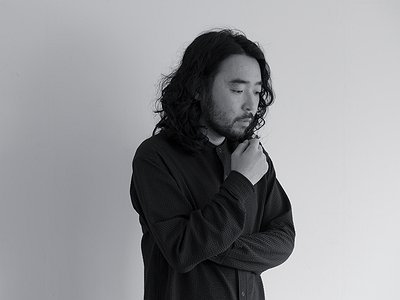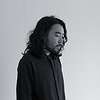Part 1
Name: Akira Kosemura
Nationality: Japanese
Occupation: Composer, Producer
Current Release: In The Dark Woods on Schole & 1631
Recommendations: Film: ‘Xiao Wu’ directed by Jia Zhangke (1997). Music: Spiegel im Spiegel by Arvo Pärt (1978)
Website / Contact: If you enjoyed this interview with Akira Kosemura, his website is http://www.akirakosemura.com/.
When did you start writing/producing music - and what or who were your early passions and influences? what is about music and/or sound that drew you to it?
I started composing music when I was around seventeen years old. Actually, I had been taught the classic piano since I was three years old but I quit it before high school and had stopped playing the piano for a while. The reason why is that it was very boring for me to practice. I was young and to practice the piano was not interesting for me then.
My early passions and influences were film music actually. When I was about ten years old, I watched Titanic in the theatre and I was very impressed by James Horner's soundtrack music. It has this very beautiful melody with the Celtic music and harmony, orchestrations mixing with the electronic sounds. That was my first record I bought myself. And also at the same time, I’ve been listening to the soundtracks by legendary John Williams and Alan Silvestri as well. After that, I learned many things from the music from the film composers, soundtrack albums I guess. But then, I was not thinking to be a composer yet. Later, at the same time of entering university, I bought a laptop and started to make something. I walked around and recorded field sounds, bird song, sounds of the tree waves, laughing voices, traffic noise, everything I had heard there. I was very interested in the sounds of the world then, so I wanted to mix the sounds of the world with some small instruments. Like a editing film, but only the sounds. It was the start of my career, actually. After that, I released my debut album and became a composer. Now I’m always interested in mixing different styles of music in one album or one song.
For most artists, originality is first preceded by a phase of learning and, often, emulating others. What was this like for you? How would you describe your own development as an artist and the transition towards your own voice? What is the relationship between copying, learning and your own creativity?
In addition to what I already answered in the first question, after the release of my debut solo album ‘It’s on Everything’ in 2007 on the Australian avant-pop label run by Lawrence English, I was around 21 years old and I’d listened to many albums of the ambient, electronica, minimal, experimental styles. It was the new world for me. Like Steve Reich, Philip Glass, John Adams, Brian Eno and also Rhoji Ikeda, Alva Noto, Fennesz of course Lawrence English and many brilliant artists. But I’m not sure what or who most influenced me to compose music. However, I was excited to listen to their music very much.
What were your main compositional- and production-challenges in the beginning and how have they changed over time?
The only thing I need to focus on is to be honest to my mind in the beginning. What I want to listen to, what I want to compose, what music I need – these are very simple things, but the important things are always simple. And like I answered in the first question, I’m always interesting in mixing some different styles of music/sounds in one album or one song. I guess this is a very important thing for everyone to make something new.
What was your first studio like? How and for what reasons has your set-up evolved over the years and what are currently some of the most important pieces of gear for you?
My very first studio was a small room with a laptop on the desk. And also I had a keyboard and an upright piano, that’s all. It was enough for me then. The reason why my studio has evolved is that I have been running my own music label ‘Schole Records’ since 2007, so the production office is my studio as well now and also I’m a film composer too, so I need some instruments for making the soundtrack. My most important gear is … always the piano I guess. And the synthesizer inspires fresh ways, too. But the most important thing for composing is always the imagination.
How do you make use of technology? In terms of the feedback mechanism between technology and creativity, what do humans excel at, what do machines excel at?
I use technology in the same way as acoustic instruments. For me, creativity is equal to imagination and technology provides the tools to expand its possibilities.
Production tools, from instruments to complex software environments, contribute to the compositional process. How does this manifest itself in your work? Can you describe the co-authorship between yourself and your tools?
Software enables me to do the things my instruments could not. It means the software makes me inspired. But the software does not make the music and does not imagine anything. A human being does. The software can be the inspiration of the human’s creativity but it can’t be the author.
Collaborations can take on many forms. What role do they play in your approach and what are your preferred ways of engaging with other creative through, for example, file sharing, jamming or just talking about ideas?
I do file sharing, jamming and talking about ideas – all of those. The collaborations should always be about something I cannot make myself. So we need to find all possible means. However, file sharing might be most wonderful way because we can collaborate with everybody in the world just by sitting at our desk.
Could you take us through a day in your life, from a possible morning routine through to your work? Do you have a fixed schedule? How do music and other aspects of your life feed back into each other - do you separate them or instead try to make them blend seamlessly?
Around 7:30, I wake up with my two years old’ boy and wife. We have breakfast together and I play with my son for a short time. Later I go to my production office/studio by bicycle and trains. I don’t have a fixed schedule but it ends up being mostly the same. For me, to make music is completely connected with my life. My inspiration is always all around me. The season’s air, smell, weather, my two years old’ boy, wife, sounds of the trees, laughing voices, the views from the car, noise of the traffic, movies, music, art, book and everything around my life. I have been saving the inspirations culled from them and the music happens in my mind.






